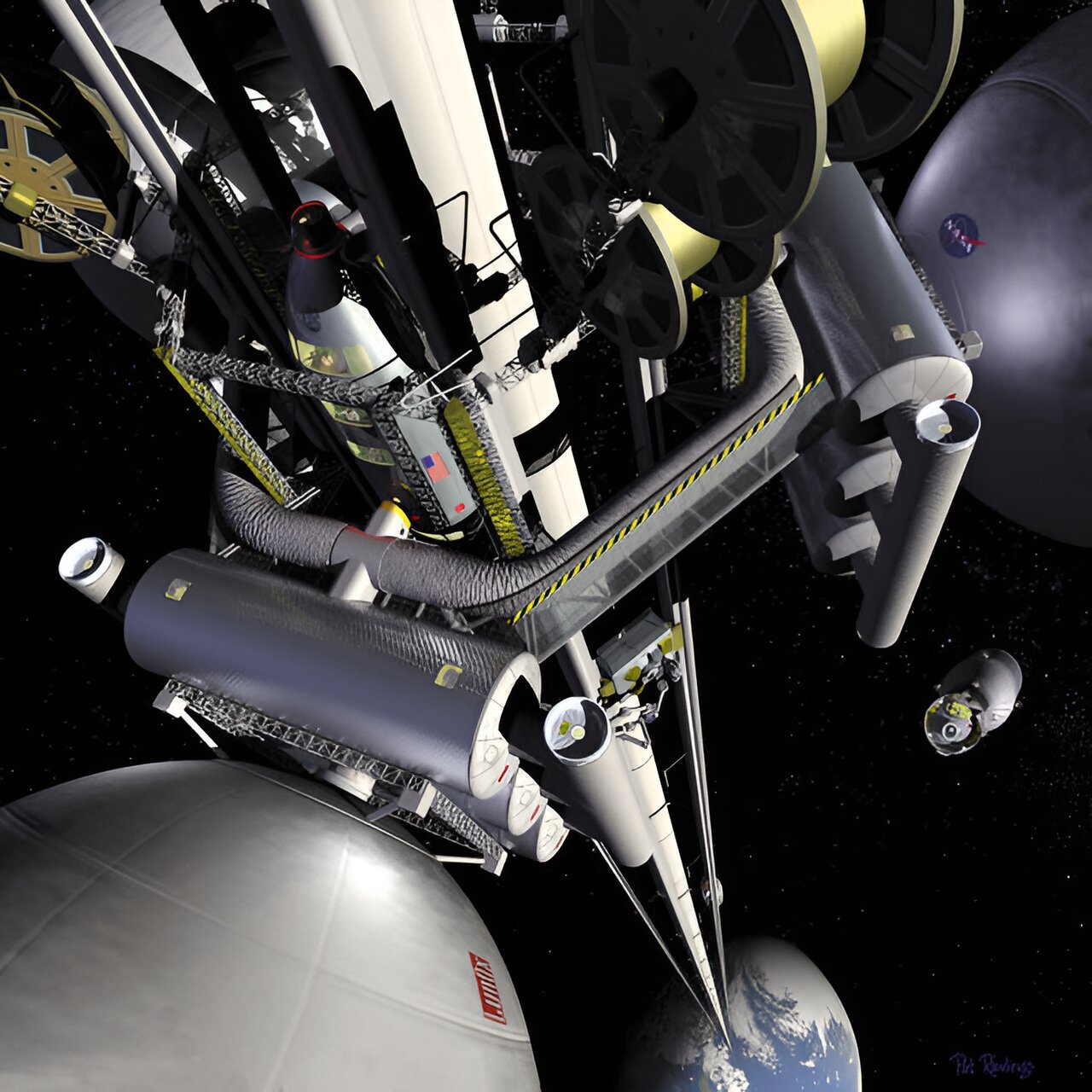
Here at UT, we’ve had several stories that describe the concept of a space elevator. They are designed to make it easier to get objects off Earth and into space. That, so far, has proven technically or economically infeasible, as no material is strong enough to support the structure passively, and it’s too energy-intensive to support it actively.
However, it could be more viable on other worlds, such as the moon. But what about worlds farther afield? A student team from the University of Colorado at Colorado Springs looked at the use case of a space elevator on Ceres and found that it could be done with existing technology. The findings are published in the journal 2024 Regional Student Conferences.
Before we discuss why anyone would want to put a space elevator on Ceres, let’s first examine the technologies that would make it possible. Every space elevator design has three different components: an anchor, a tether, and a counterweight. Each would require its own technologies.
The anchor is simple enough; it’s how the system interfaces with Ceres. The surface of Ceres is primarily made of clay, which is relatively good for anchoring technologies. Luckily, the force the anchor needs to withstand is only around 300N, which is much lower than the force on Earth, given Ceres’ small mass.
There have already been asteroid anchoring technologies for other missions that can provide up to 500N of force resistance, so an anchor on Ceres should prove no real challenge.
The tether is where the technology falls short on Earth—no material known to science can withstand the forces exerted on the tether of a passively controlled space elevator when it is tied to Earth. However, the closest we can come, something space elevator enthusiasts mention as almost a holy grail, is carbon nanotubes.
In the analysis for the space elevator on Ceres, they once again came out ahead. However, the limitation of actually physically creating a long tether will still plague any space elevator design on Ceres.
The counterweight is much simpler, as it can be just a big, dumb mass. However, its mass is proportional to the necessary length of cable—the heavier the mass, the shorter the cable. So, the tradeoff between having a heavier counterweight and a shorter cable is another design consideration when considering these systems.
Calculations from the team show that, with only a little more technological development, all three main systems could be ready for installation on Ceres itself. But what advantages does it have? It could be helpful as a launching point for accessing other asteroids in the asteroid belt.
Ceres also has water relatively near the surface, which is helpful for all kinds of human exploration, either as rocket fuel or biological systems. It’s also well placed to quickly get things back to Earth using Jupiter as a gravity assist.
But before it can provide any of those advantages, someone is going to have to pay for it. Estimates of the overall cost of the system total about $5.2 billion—not too far out of the range of larger-scale space exploration projects. But more than most countries are likely willing to pony up for a grand infrastructure project that hasn’t yet proven its benefit.
So, for now, any space elevator will remain in the realm of science fiction. But research like this and other ongoing technological improvements is how we will eventually push forward to that future. Whether it’s a space elevator on Ceres, on the moon, or some other novel launch technology, someday humans will need a better way to get off Earth rather than burning dead living organisms. Hopefully, that day will come sooner rather than later.
More information:
Joseph Bate et al, Analyzing the Potential of Space Elevator Technology for Sustainable Asteroid Mining, 2024 Regional Student Conferences (2024). DOI: 10.2514/6.2024-85461
Provided by
Universe Today
Citation:
Using a space elevator to get resources from Ceres (2024, September 10)
retrieved 10 September 2024
from https://phys.org/news/2024-09-space-elevator-resources-ceres.html
This document is subject to copyright. Apart from any fair dealing for the purpose of private study or research, no
part may be reproduced without the written permission. The content is provided for information purposes only.
